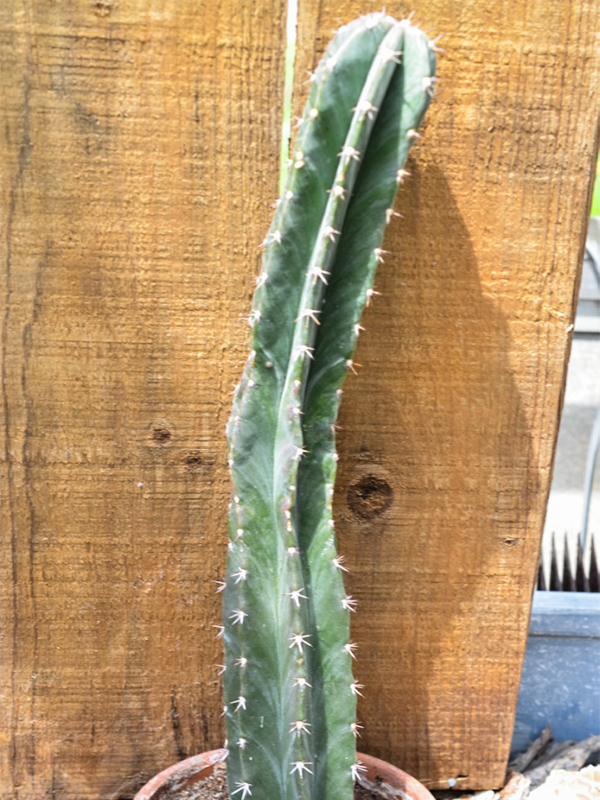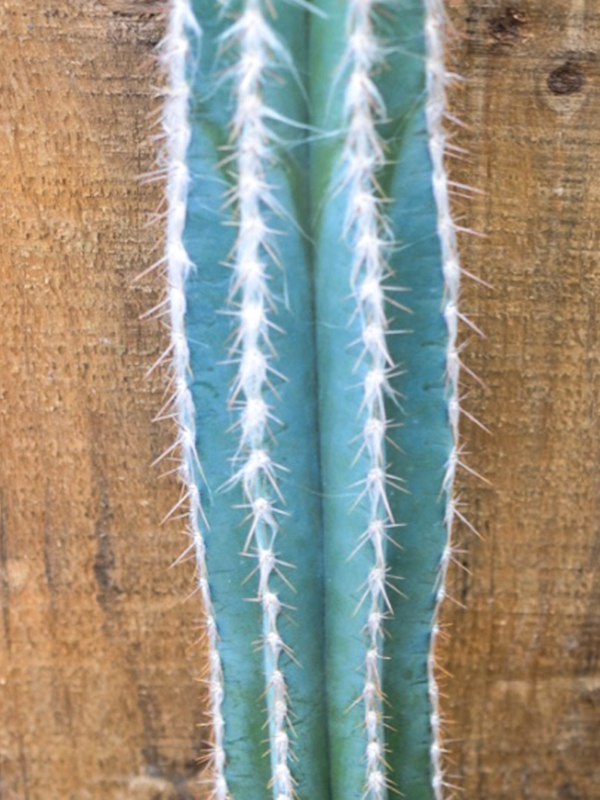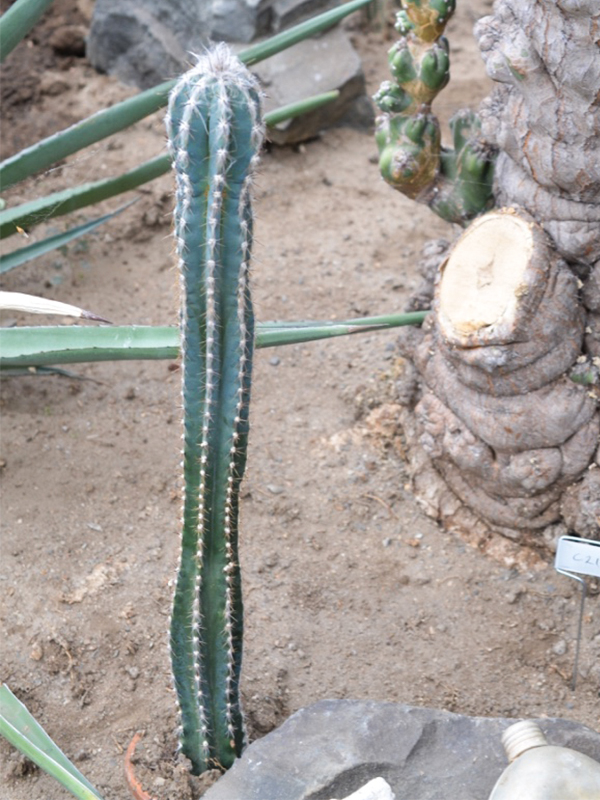| General Description | Resembles the San Pedro (Trichocereus pachanoi) in form. |
| Propagation | Can be easily rooted from offsets, which cluster around the base of the mother plant. Cut offsets close to the stem, at the narrowest possible place. When rooting cacti from cuttings, let the fresh cutting dry out slightly on a paper towel and cut the cacti at the narrowest place possible. After a few days to a few weeks, the cut surface will dry out and form a callous or slightly rough opening. Once the callous has formed, place the cutting in a rooting mixture of fast-draining cacti soil. Add small drainage holes in the growing container to help reduce chances of over-watering. The environment should be humid and ideally around 23 °C, but do not place the growing medium directly on a heater. Fluorescent lighting is preferred for the first 3 months of growth. Only after a year should they be placed in direct light. |
| Cultivation | Best cultivated in a sterilized mix of sand, perlite and gravel. Prefers a drying period between waterings, even to the point where they slightly wilt. When watering, water deeply. The plant will noticeably plump up. Do not leave exposed to prolonged dampness and sitting water. Never put in a dish of water. Fertilize during the growing season for the best results. |
| Notable Specimens | Centennial Conservatory, Thunder Bay, Ontario, Canada. |
| Bark/Stem Description | 6 to 8 ribs with additional branches extending from the base. |
| Flower Description | Large flowers open at night and are produced at the end of stems. Up to 24 cm long and up to 20 cm in diameter. Large flowers open at night and are produced at the end of stems. Up to 24 cm long and up to 20 cm in diameter. |
| Colour Description | Bark is green to blue-green. Flowers are white. |


